“Coptic Christians have an insatiable desire to have a Bible”
Ramez Atallah, Director of the Bible Society Egypt, addresses some of the misconceptions about the country, and analyses the presence and influence of the Christian minority.
WISLA (POLAND) · 20 MAY 2019 · 08:00 CET
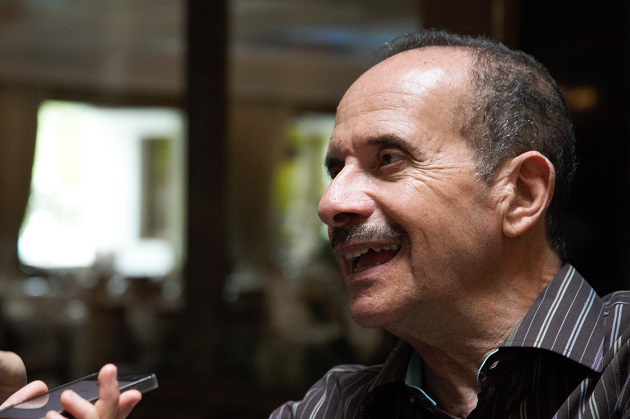
Serving as the General Director of the Bible Society in Egypt, Ramez Atallah knows the reality of Christians in his country well.
Having travelled a lot and been active in global movements like the Lausanne Movement and IFES, Atallah has seen the impact of the Bible in Western cultures as well as in in Arabic contexts.
In the following interview, Atallah analyses the reaction of Christians to violence, the misconceptions about Egypt, the two sides of Islam in the country, and the relationships between Coptic Christians and other Christian minorities, such as the evangelical community.
Atallah is the main Bible expositor of the 2019 European Leadership Forum (ELF) conference, in Poland.
Note: This interview with Ramez Atallah was conducted in May 2017.
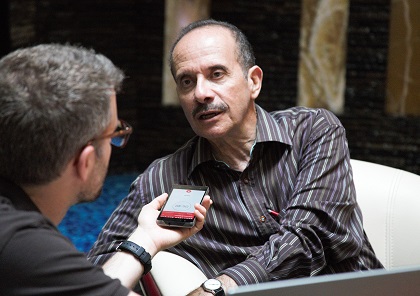
Question. How do you think people in other parts of the world see Egypt? What are the misconceptions?
Answer. Egypt is a very interesting touristic site, with many of the most antiquities in the world: the Pyramids are the only remaining wonder of the “7 Wonders”. And you would be in love with going to scuba diving in the winter, Egypt has all these beaches….
We are getting very few tourists, and the reason for this is that people think it is a very dangerous place to go. When a terrorist attack happened in Manchester, nobody thought of not going to England. So, we think it is a bit unfair that our country is boycotted, and considered very dangerous.
Christians in other places see our country as a place where Christians are being persecuted.
In Egypt, if a terrorist organization puts a bomb in the streets, they will kill more Muslims than Christians, because Christians are 10 per cent of the population. So, the reasons to put a bomb in a church is to make sure that all the victims are Christians.
Q. What could media do to portray Egypt fairly while still informing about the problems Christians are facing there?
A. In general, we have a government that is not asking us to be politically correct in something that we do not believe in, and that gives us Christians great freedom within our churches. It is true that there are things that you can do in the West which you cannot do in a Muslim majority country, but these things, for those living in Egypt, are not a big hindrance.
For instance, in Egypt, you cannot go on the streets and distribute Christian literature, but we have sixteen Bible Society bookshops in the main cities of Cairo. You can go there anytime and buy a book. We also can rent any book table at any book fair and sell Scriptures.
So, we have tremendous freedom. The one thing we cannot do is going out and giving free literature. And because of that, we are seen like: ‘Oh, this is a persecuted minority and they do not have our freedoms’. The West at times fights blindly for some freedoms that we do not care about very much, because there are more important issues.
There is discrimination in Egypt, and some people left the country because they thought they had not a good chance. When aid agencies or persecution organisations interview Egyptian Christians in the West, they tsometimes get sad stories about the country.
But this is not the way most of us in Egypt feel. People in Egypt think that because there a lot of freedoms in the West, they do not understand, I think, that these Western societies are really very anti-evangelical in other many ways. For instance, political correctness is very limiting for Christians in the West.
Q. Some time ago, your Christian bookstores also suffered attacks.
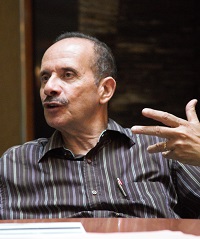
This was a political move, not a religious move. Attacking our Christian bookshops was not an attempt to stop the Bible being sold in Egypt, but an attempt to create chaos in society. This is how we see it, we have been around for a long time and I did not have a stone thrown into any of our bookshops.
I feel completely safe in Egypt, both politically and socially, and in other ways.
Q. Is this feeling of security real for Christians in all regions of Egypt?
A. There are village feuds in the South of the country where Christians do not feel safe, because their neighbours are fanatical Muslims. For a variety of reasons, they have attacked these Christians, burnt their houses, and treated them badly. But this discrimination is mostly inter-racial issues, long-lasting fights between extended families.
It usually comes when a young man who is a Christian, let’s say, would be attracted to a girl who is a Muslim. Then the family of the girl would get very upset and would accuse him of having raped her, even though he would not have done so, and so war beings between these two families. But thankfully Egypt is not a tribal country. So, these incidents, though they continue to happen in the South, they are not symptomatic of a country as a whole, they are exceptions.
Q. How do you distribute the Bible in Egypt? Is there an increase in interest in the Christian Scriptures?
A. We have ten million Christians in Egypt, and the Coptic Church is very, very committed to the Bible. It is probably one of the churches in the world that is most committed to the Bible. We can’t keep up with the insatiable desire of Copts to have a Bible.
As I am talking to you now, there is a big event happening in Egypt with thousands of young people, a Christian festival this week. And we are selling lots of Scriptures, we have a large event in a tent for youth, Scripture competitions, ‘talent shows’ on biblical themes.
The activities happening in summer are incredible. The churches are incredibly busy, because school vacations are very long (from May to September). Parents work, and churches do not want their children on the street. So, every day, churches have clubs. Young people go and spend the whole day there. They play games, study Scripture, and attend services. I am talking of thousands, one church in Egypt has 10,000 children in their Sunday school, we are talking about very large numbers.
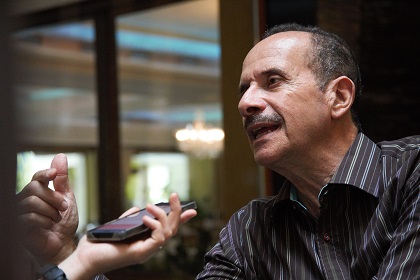
When you see this, it does not seem like a persecuted minority. When you know that 30 per cent of wealth is owned by Christian entrepreneurs, and that the richest family in Egypt is a Christian family, you realise that the image of a persecuted minority is not completely right. Something must be wrong with that image.
Q. These clubs for children and camps in the summer, are they open for non-Christians?
A. It depends. All social services, or a large majority, are open to all Christians and Muslims. But once you have a religious content, these activities are not open, because then you would be accused of proselytism. You cannot invite students, from instance, to a church.
Except for generic children’s events, we do that in several places. We promote values, it is based on Christian thinking, but it is not proselytism. Muslim children can come and be relaxed. It is a minority of the activities we do, but it can be done.
Q. What can Christians in other parts of the world learn from the way Christians in Egypt relate to people of other religions and worldviews?
A. Egypt was a Christian country, until Islam came in the 7th century. So, all the Muslims in Egypt have a Christian background. Until very recently, until the 60s, the Islam in Egypt was soaked in Christian ethics, so though people worship differently, and believe differently, their day to day habits did not look different. Even though a Muslim man can marry four wives, I knew hardly anyone at school, when I was a student, whose father had married more than one woman.
So, we live in a country in which Islam, until the 60s, was quiet moderate. When thousands of Egyptians went to the Saudi Arabia, to the Gulf, to work, they came back with a Wahhabi Islam, a fanatic Islam, the Islam that created Al-Qaida. This ideology penetrated our education system, our religious institutions and has changed the nature of Islam.
Within Egypt, today, a lot of the teaching is very fanatical. But the people themselves are not that way. There is still the residue of good relationships with Christians. So, we have a contradiction between a teaching that could be called ‘anti-Christian’, and a practice which is not.
The present President has called the religious leaders in the country to remove from religious texts anything that encourages violence, and he has been disappointed that this has not been done. It is very complicated. We have government wanting Christians to be co-citizens in Egypt with equal rights and they are working very hard towards it.
President Sisi is probably the most outspoken world leader today against radical Islam. The reason is, some Muslim leaders do not want to speak against radical Islam, while Western leaders cannot speak against radical Islam, because they would be accused of Islamophobia – they are very careful. Trump, unlike Obama, is using the word “Islamic” and “Islamist” talking about Islamic radicals. Obama would not use it, he would talk about “terrorists” or “violents”.
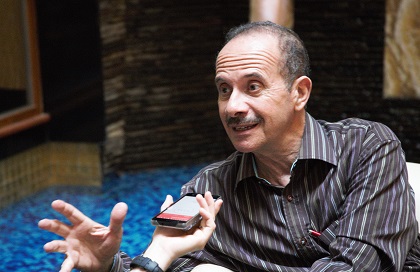
But Sisi has been very outspoken. Twice a year, when he gives major speeches he goes one talking about these issues. In one of the recent speeches, he said that he couldn’t understand all these radicals going around killing people, and that Muslims had to coexist with Christians in Egypt, because, he said, Christians are brothers and sisters.
In another situation, the President said he could not understand people who worship a God that wants them to kill innocent people. So, we have a leader who is doing this, and many in the political realm support him. Some leaders in the [Muslim] religious realm support him, others do not know what to do about it.
So, we had a dichotomy between what Muslims are told, and what they feel in real life. Muslims are much more peaceful, thoughtful, kind, and supportive in daily life than some of the teaching they are getting.
Q. Do you think these policies of President Al-Sisi will have an impact in the long term and in the countries surrounding Egypt?
A. If he lasts, it probably will have an impact in the long term. We hope that he stays for a long time so he can implement these policies. People accuse him of being a dictator, but I believe this is a media campaign by right-wing Muslims to discredit a man who is the most active leader against political Islam in the world.
Here is the dilemma. Western rulers are pushing for Sisi to protect Christians more. How do you protect them? Well, you increase the presence of the army and the police. You make it much more into a police state. Then, the same people are criticising for not having a high level of Human Rights. This is difficult if you want to keep an eye for everyone who could be a terrorist. The very things they are asking for, are contradictory: protect the Christians more, and increase Human Rights. One of the reasons that Egypt is safe for tourists is that we have a very strong police state.
Having by definition a police state means that walking down the street you could be arrested unjustly, you could be put in prison longer than you should be, because they are trying to scare people, to make sure nobody wants to be a terrorist.
You cannot have your cake and eat it. Either you want Egypt to be a completely free country, in which case you will have a lot of terrorism; or you want to be safe, in which case you have to have a police state.
Q. We have heard much about the new law of Christians worship places, which should make it much easier to build churches. How much have Christians been involved in that law?
A. Christians have been very much involved in drafting that law. People who are idealistic feel it has not gone far enough, they wanted to be like in the US. But even in the US today problems come up related to places of worship at times.
One of the great things the law has done is that it has given a time for all of churches to publicly declare the places they had for worship which were undeclared. Many people had apartments, buildings, undercover churches. So, the government said, instead of having these churches underground, tell us about them, and we will try to get you licenses. There are hundreds of these places and many places of worship have become legal, that is the first step.
In addition, the government is offering a place of worship for every Christians confession: Protestants, Orthodoxes and Catholics. The problem is that there are seven Catholic denominations, eighteen Protestant denominations and three Orthodox. The government is not offering one place for every denomination but one for every confession. So, the issue is, who is going to get it? Will the Baptists get it, or the Pentecostals, or the Methodists? This is still a problem to work through, but it is understandable: they do not want eighteen Protestant churches in a small place.
There will be a Catholic, a Protestant and an Orthodox church in every new settlement, every new city or town. How this will work out in practice is an internal problem of Christians.
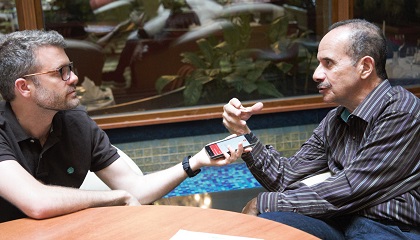
Q. Finally, tell us bit about the evangelical Christians in Egypt. How do they relate to other Christian denominations?
A. One of the differences between evangelical Christians in Egypt and, let’s say, evangelicals in Latin America, is that the majority of evangelical Christians in Egypt have a positive relationship with the Orthodox Church, because we have a very biblically based Orthodox Church.
Many evangelicals admire Orthodoxes, and listen to teachers of preachers of that church. So, we do not have a situation in which there is suspicion, as in other places with the Roman Catholic Church. There are good relationships, which does not mean that everything is fine, but there is a different atmosphere.
One of our strongest constituencies are a Presbyterian church and a Brethren church, and many of our staff are of these churches. They are very relaxed working with Orthodox people, and very supportive, whereas in other countries, where the Bible Society works with Catholics, for instance, they get criticised. We are in a completely different situation. Because we are in a minority, every progress or success of Christians is supported by the other denominations.
The three heads of the Protestant, Catholic and Orthodox today, to which the government relates, are good friends, and work well together. They are trying to solve problems for Christians, in a good spirit. There is a real sense of working together in the country.
Evangelicals are more influential than their actual number, because they have publishing houses, satellite television stations and very good preachers. Many Orthodox Christians would go to evangelical events and maybe attend evangelical churches but get baptised, married and buried Orthodox. This is an accepted part of life.
Evangelicals have a great influence, through their ministries. The Presbyterians have very good schools, as well as the Catholics, schools who influence society. I think there is much mutual appreciation.
Published in: Evangelical Focus - world - “Coptic Christians have an insatiable desire to have a Bible”
